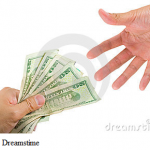FDA Backs Selling Hearing Aids Over the Counter
 The U.S. Food and Drug Administration (FDA) just announced it is taking steps to make hearing aids available over the counter. The FDA plans to immediately stop enforcing a requirement that patients must have a medical evaluation prior to obtaining a hearing aid. The Agency also hopes its move will stimulate a new category of OTC hearing aid products that cost less. In this regard, hearing aids will function in a manner similar to reading glasses. The move was likely due to prodding by Senators Elizabeth Warren (D-MA) and Chuck Grassley (R-IA), who recently introduced legislation along these lines.
The U.S. Food and Drug Administration (FDA) just announced it is taking steps to make hearing aids available over the counter. The FDA plans to immediately stop enforcing a requirement that patients must have a medical evaluation prior to obtaining a hearing aid. The Agency also hopes its move will stimulate a new category of OTC hearing aid products that cost less. In this regard, hearing aids will function in a manner similar to reading glasses. The move was likely due to prodding by Senators Elizabeth Warren (D-MA) and Chuck Grassley (R-IA), who recently introduced legislation along these lines.
According to information gathered by AARP the average cost of an individual hearing aid is about $2,300, with a pair costing double that amount. Of the total charges, retailer markups (which includes patient training and education) can run $2,236 for a pair of hearing aids. A trip to the otolaryngologist, who might arrange for the services of an audiologist to administer a hearing test, might set you back $250 to $400. A blog post by Embrace Hearing suggests the bundled price — when patients over-pay for hearing aids but get free service on the devices — may be equivalent to paying $1,000 a visit for the services of a technician to adjust a hearing aid. Of course this all depends on the number of visits needed.
The price for hearing aids, hearing tests, hearing aid adjustments and training will likely fall now that the requirement to have a medical evaluation is no longer enforced by the FDA. Moreover, I foresee some web-based purveyors assisting patients with hearing tests and helping them adjust the devices.
This is yet another example where lobbyists almost blocked consumer sovereignty. Backstory: In 2015 the President’s Council of Advisors on Science and Technology recommended that consumers be allowed to purchase personal sound amplification products (PSAPs) over-the-counter. In response to the report, the president of American Speech-Language-Hearing Association — the professionals who stood to lose money if consumers could bypass them — sent a letter to the council members saying it was a bad idea. The FDA later announced it was accepting public comments on the proposal through June 30, 2016.
Guess what: most “public comments” were critical of the idea that consumers should be allowed to purchase a hearing aid without consulting a hearing professional! Indeed, most of the comments were submitted through websites that generated identical form letters, saying:
1) “The lay person is unable to reliably self-diagnose, self-evaluate, and self-treat hearing loss.”
2) “Most PSAPs are potentially dangerous to the hearing health of consumers due to having a maximum output that is too high.”
3) “Most PSAPs lack the features to produce any benefit for the number one reason people seek assistance: speech understanding in noise.”
Of course, it doesn’t take a rocket scientist to realize the form letters were the work of lobbyists for hearing professionals, whose members were encouraged to comment in order to protect their livelihood. When is the last time you’ve heard someone complain that aspirin or reading glasses should only be available by prescription? I’m assuming the answer is never.
A general complaint was that a more basic OTC hearing aid design, that is less sophisticated than the more highly regulated hearing aids currently on the market, would be a step backwards. Heaven forbid that consumers (many of whom would otherwise go without) have an option cheaper than spending $5,000 for a hearing aid that lasts 5 years. Actually I am willing to bet the quality and technology will improve when regulatory impediments no longer prevent new entrants into the field.
There will always be a need for in-office visits to an audiologist for hearing tests and assessments. However, when visits are voluntary rather than required by law, providers will be free to innovate with new service arrangements and compete for patients’ business in new ways. Stated another way, gatekeepers can charge higher fees and earn more than voluntary service providers due to regulatory protection. The FDA also needs to work with would-be hearing aid designers to streamline the process of getting approval to market cheaper, over-the-counter designs.

